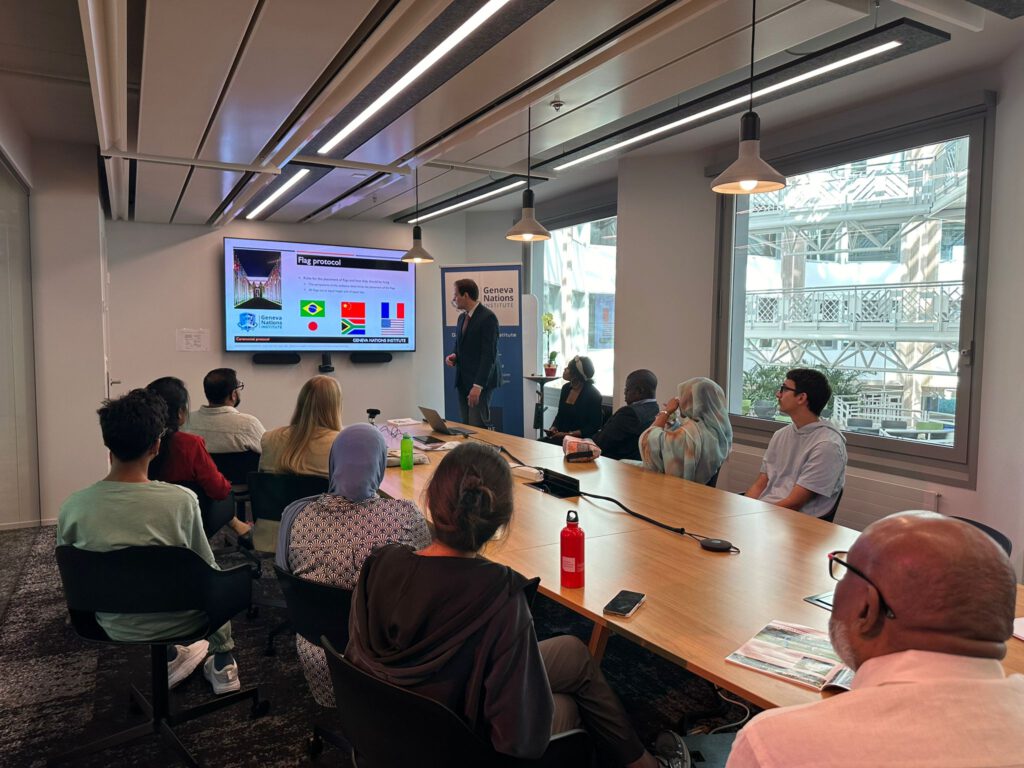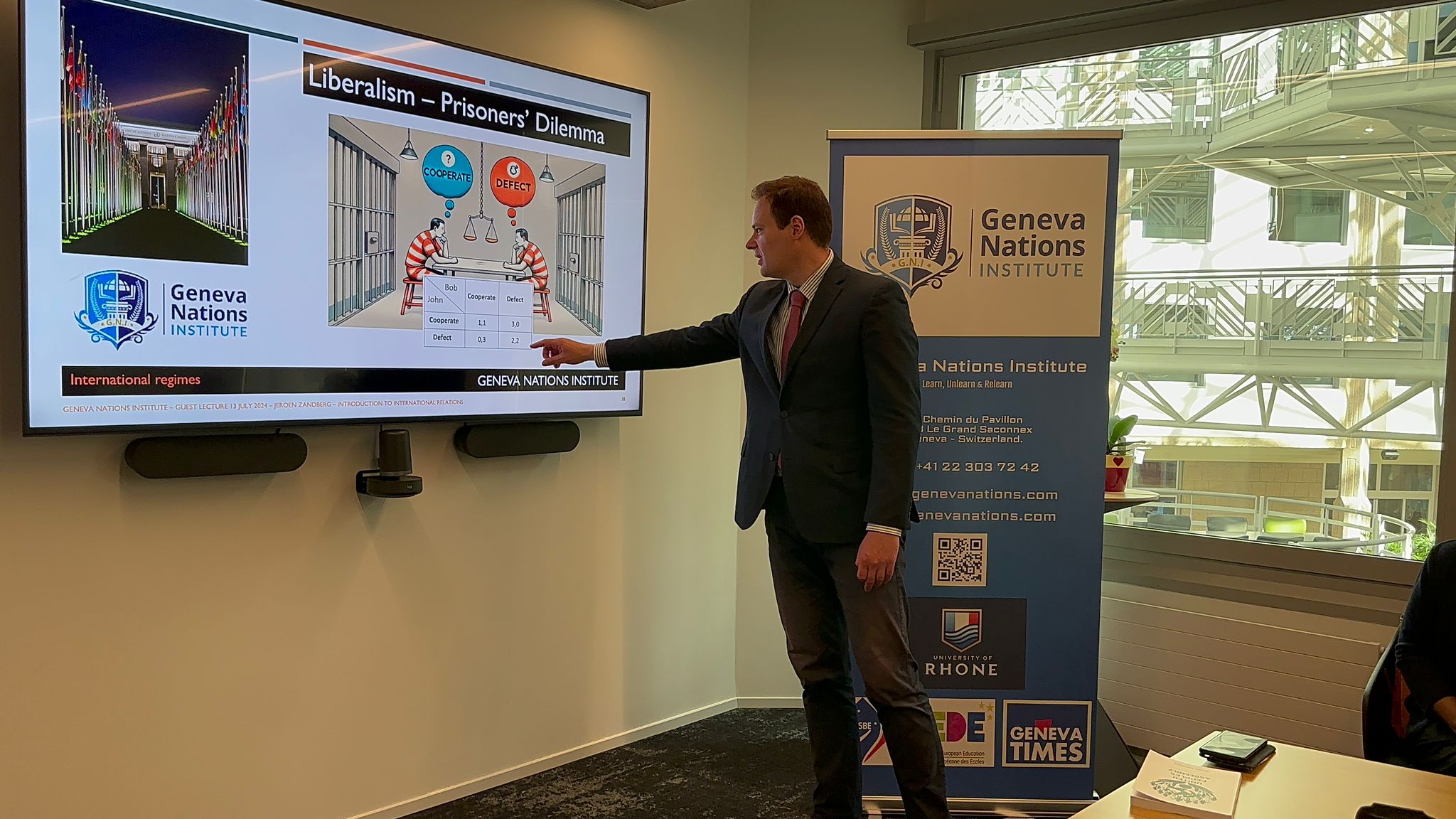Below is an interview with Geneva Times from 13 July 2024:
Geneva Times: Can you tell us about yourself?
Sure, my name is Jeroen Zandberg and I am from the Netherlands. I have been working with underrepresented nations, states and Peoples for many years. I am currently in Geneva for three main reasons.
Frisian language
Firstly, I am here [in Geneva, Switzerland on 11- 13 July 2024] to inform UN experts about my ongoing study into the visibility and government-use of the Sater-Frisian language. Sater-Frisian is the last surviving dialect of the East Frisian language and is spoken in just four villages in northwestern Germany. Frisian used to be spoken along large swaths of the German North Sea coast, but a policy of ‘defreezing’, the marginalization of Frisian in favor of German, led to the present situation where only small pockets of Frisian-language communities exist. Although Frisian is an official language in the areas where it is spoken, the language is in practice marginalized and under threat. The study is part of my dissertation I am writing on the use of Frisian in local and regional public administrations in Germany.
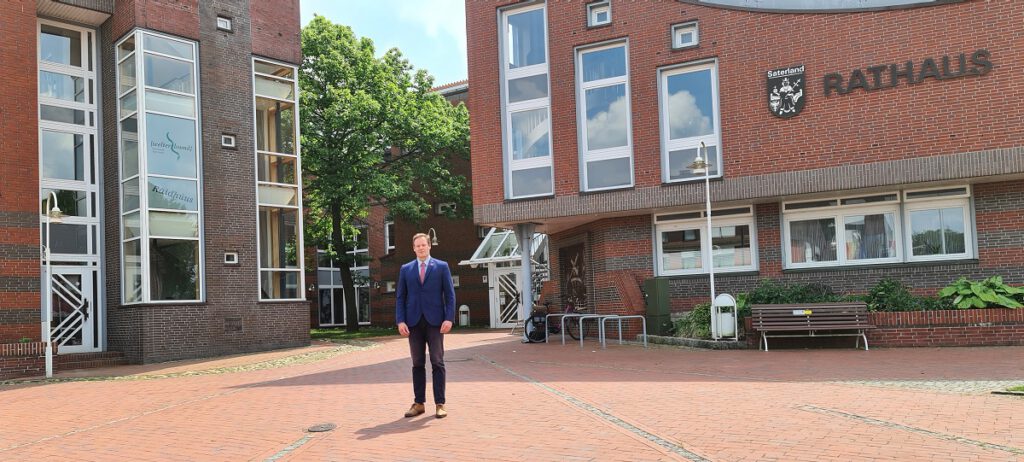
I looked at the Linguistic Landscape of Saterland. For example, the place-name signs of four villages are bilingual; both in German and Frisian, but all other official public signs and boards in the area are only in German. The official government websites are currently also fully German. Until February 2024, the main website of Saterland was bilingual, but due to a reorganization of this website, in order to provide citizens with e-governance services, the Frisian language version was discarded. This action reflects the use of Sater-Frisian within the public administration of the local government.
My study also looked at the use of the Frisian language by local government employees. It found that the Frisian language is only used in informal individual communication with citizens and is completely absent in official documents and internal administrative procedures. Numerous reasons exist for this marginal use of Frisian. Here, I want to highlight the underdevelopment of the language. Firstly, it lacks a digital language model, which makes automatic translation impossible. Secondly, the Sater-Frisian language lacks the specialized vocabulary for a professional, administrative work-setting; many words simply don’t exist in Sater-Frisian. In my ongoing research I show several options to solve these issues and make it a fully developed professional, administrative language, fit for the digital age.
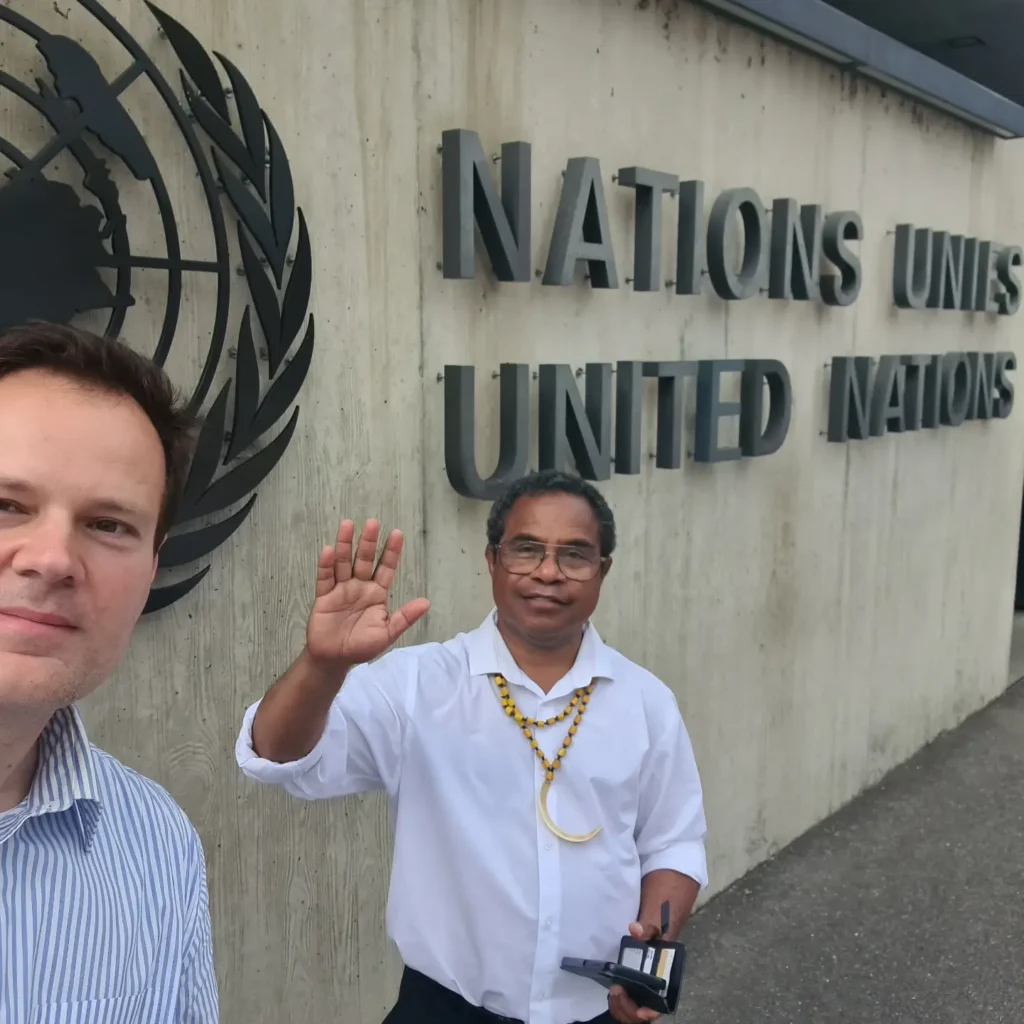
West Papua projects
Secondly, I am in Geneva to talk with organizations about ongoing and planned projects for West Papua. West Papua is a region on the western half of the island of New Guinea, which represents the second-largest island in the world. Nowadays, it is ruled by Indonesia. Historically, West Papua was a Dutch colony until 1962, after which control was transferred to Indonesia in 1963, according to the United Nations-brokered New York Agreement. In 1969, the referendum on the ‘Act of Free Choice,’ intended to decide the political status of the region, resulted in the formal integration of West Papua into Indonesia. This process has, however, been hugely criticized as flawed and not representative on claims of coercion and manipulation. The Papuans then began to plead for genuine self-determination and greater autonomy.
I have been working with the Papuans for over a decade and we are currently working on several projects to raise awareness of the situation and to support those in need. Together with the chairman of the National Papua Association, Simon Sapioper, we met several NGOs in the past days to discuss these projects, which range from a photo exhibition on West Papua refugees, to a conflict prevention and negotiation project to an environmental project. It feels good to have the support of so many influential NGOs, which gives hope for the future.
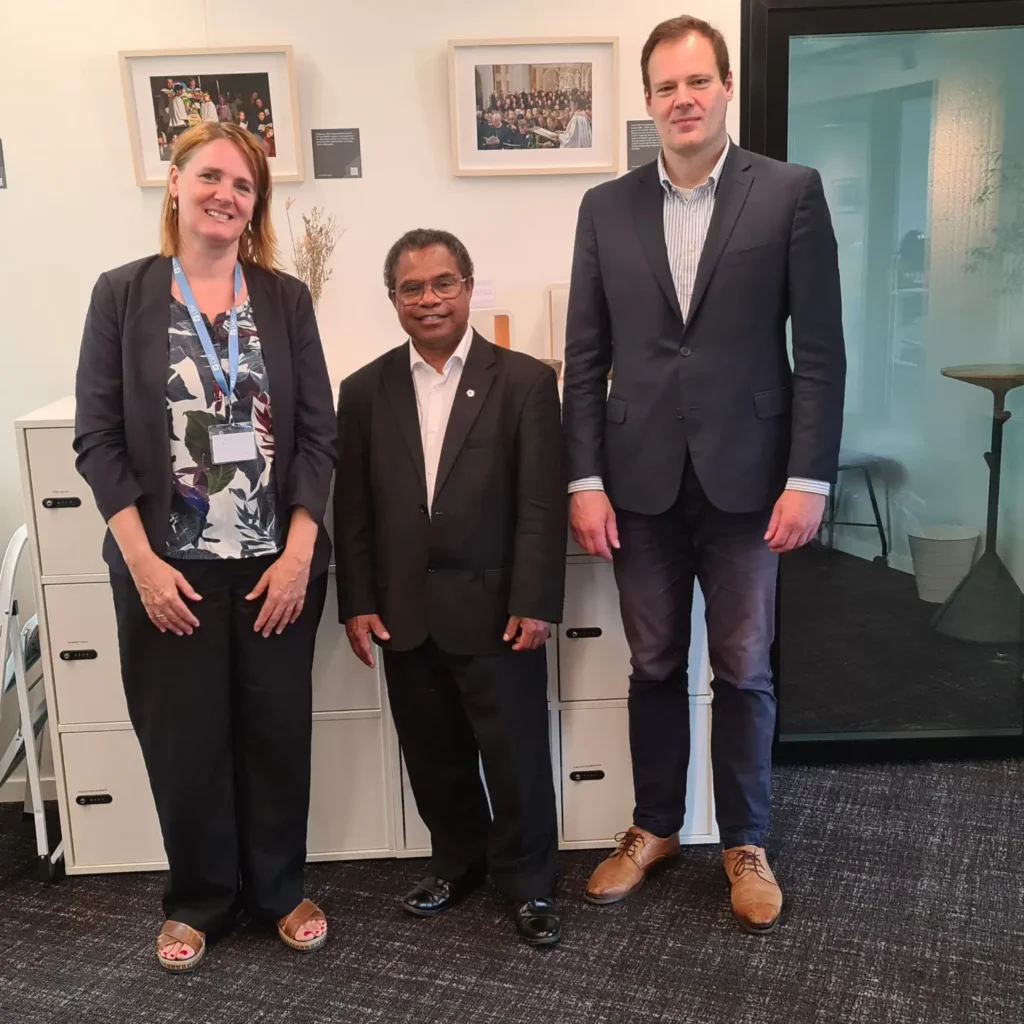
Geneva Nations Institute training
I am also involved with a number of key initiatives with the goal of advancing human rights and self-determination for underrepresented nations and Peoples. Principal among them is the training of young human rights leaders for the future. This takes the form of a lecture and training series arranged by the Geneva Nations Institute (GNI). In my lecture on Saturday 13 July, I dealt with the theories and basics of international relations, using examples from many years of practical work with underrepresented Peoples like West Papua, the Rehoboth Basters, the Cham, the Frisians, and others.
I described the efforts and sacrifices these underrepresented nations and Peoples make on the international scene in order to get their voices heard and get attention for their rights. I emphasized the importance of self-determination and how this can be implemented in contemporary times. Additionally, I discussed the strategies and tools needed to defend human rights, which are increasingly under threat. This training is designed to equip young people with the tools, knowledge and skills necessary to effectively champion language rights, cultural rights, and broader human rights.
I am hopeful that the GNI will organize a more elaborate training session later in the year, which will further enhance the capacity of these young leaders to make a meaningful impact in their communities and beyond. My goal is to empower the next generation of human rights defenders with the practical tools and theoretical understanding they need to navigate the complex landscape of international advocacy and achieve lasting change.
